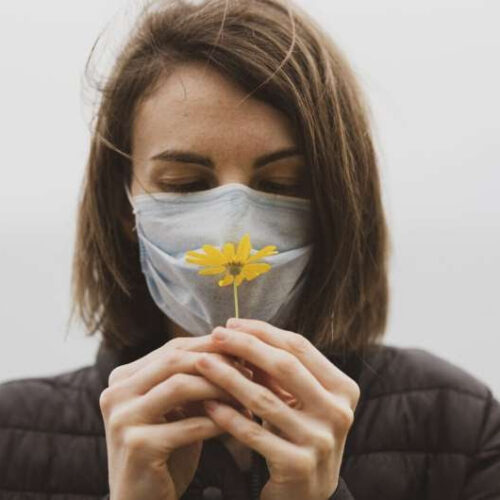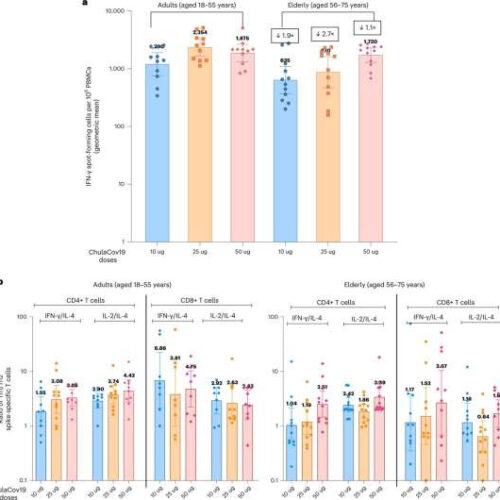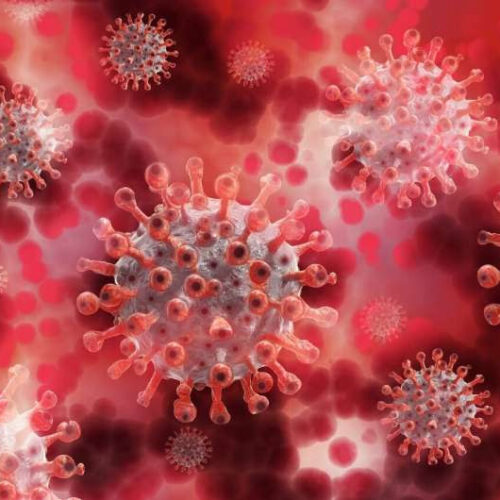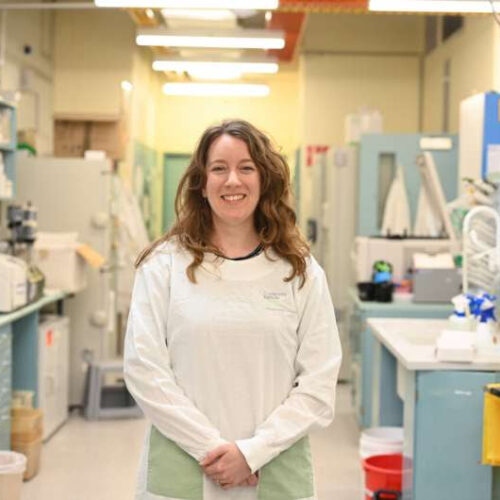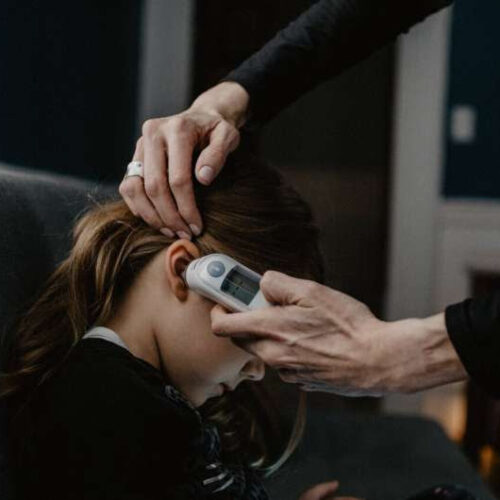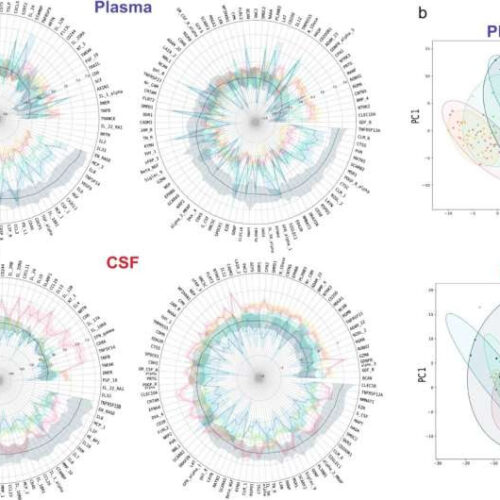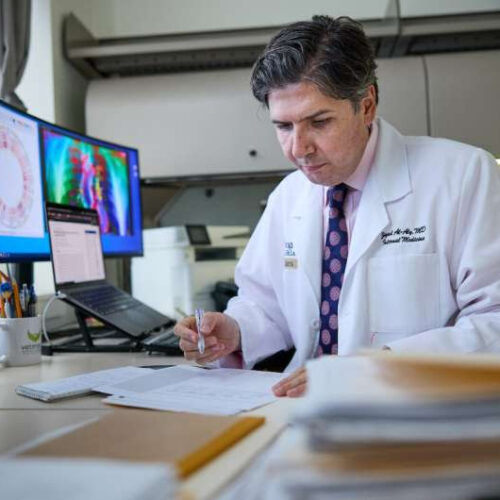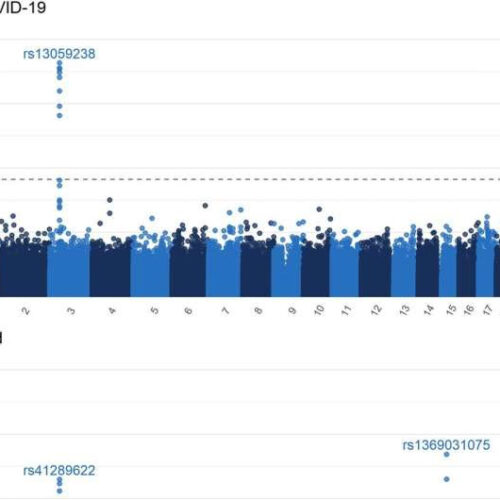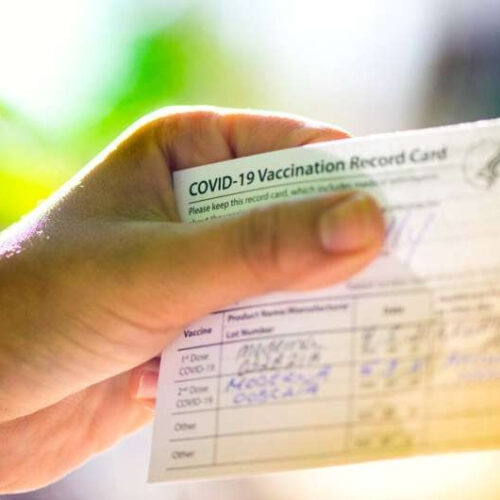by University Medical Center Utrecht Credit: Pixabay/CC0 Public Domain In a study executed by University Medical Center (UMC) Utrecht, it has been demonstrated that prednisolone does not improve a patient’s sense of smell after COVID-19. In addition, in most patients—irrespective of prednisolone use—the sense of smell gradually improved over time. The authors recommend that physicians...
Tag: <span>COVID-19</span>
COVID-19 vaccine developed in Thailand can be stored in refrigerator for three months
by Bob Yirka, Medical Xpress Magnitude of ChulaCov-induced CD4+ and CD8+ T-cell responses. PBMCs were obtained on day 29 after the first dose from participants in each cohort (adult n = 11 per dose, elderly n = 12 per dose). The numbers above the bars show the GMT in the group. Error bars indicate 95% confidence intervals. a, SARS-Cov-2...
Keeping indoor humidity levels at a ‘sweet spot’ may reduce the spread of COVID-19
by Jennifer Chu, Massachusetts Institute of Technology Credit: Pixabay/CC0 Public Domain We know proper indoor ventilation is key to reducing the spread of COVID-19. Now, a study by MIT researchers finds that indoor relative humidity may also influence transmission of the virus. Relative humidity is the amount of moisture in the air compared to the total moisture...
New nasal vaccine strategy could improve COVID-19 protection
by Centenary Institute Dr Anneliese Ashhurst, University of Sydney and Centenary Institute. Credit: Centenary Institute Researchers from the Centenary Institute and the University of Sydney have developed a new nasal vaccination strategy that induces potent lung immunity and protection against the SARS-CoV-2 coronavirus. The new vaccine approach has been tested successfully in mice and has...
Long-term physical and mental health outcomes after COVID-19 occur in all ages
by Public Library of Science Researchers find long-term physical and mental health outcomes after COVID-19 occur in all ages. Credit: Kelly Sikkema, Unsplash (CC0, creativecommons.org/publicdomain/zero/1.0/) Following COVID-19 infection, there is significant new onset morbidity in children, adolescents and adults across 13 distinct diagnosis and symptom complexes, according to a new study publishing November 10 in the...
How COVID-19 causes neurological damage
by University of Basel Neuro-COVID patients display a vigorous peripheral immune response and specific CSF alterations including analytes with high predictive value for class III development and strong CSF-plasma correlation. a Rose plots representing Z-scores of marginalized normalized protein expression (NPX) of 192 soluble proteins in CSF and plasma. For better visualization, analytes have been grouped into...
Repeat COVID-19 infections increase risk of organ failure, death
by Washington University in St. Louis Ziyad Al-Aly, MD, a clinical epidemiologist at Washington University School of Medicine in St. Louis and the Veterans Affairs St. Louis Health Care system, examines data from a new study. Researchers led by Al-Aly found that repeat SARS-CoV-2 infections contribute significant additional risk of adverse health conditions in multiple organ...
Mutation in TLR7 increases risk of severe COVID-19
by University of Bonn Single variant exome-wide association study Manhattan plot (MAF>0.1%). QQ-plot available in the S1 Fig. Black dashed line demarcates the genome-wide significance threshold (p < 5×10-8). Credit: PLOS Genetics (2022). DOI: 10.1371/journal.pgen.1010367 Rare gene mutations can significantly increase the risk of severe COVID-19 disease. An international research team with significant contribution from the University...
Do we still need to hold onto COVID-19 vaccination cards?
by Jessica Taylor Price, Northeastern University Credit: Matthew Modoono/Northeastern University Where is your COVID-19 vaccination card? Is it in your wallet or purse? Is it at home, buried in a pile of mail? Is it lost? If you’re not sure, you’re not alone. “It’s tucked away at home, I think,” said Northeastern student Kenny Nguyen,...
Research at Jacobs University: Coffee could offer protection from catching COVID-19
JACOBS UNIVERSITY BREMEN GGMBH IMAGE: PROFESSOR NIKOLAI KUHNERT AND HIS TEAM WERE ABLE TO SHOW THAT A COMPOUND IN COFFEE INHIBITS THE INTERACTION BETWEEN THE SPIKE PROTEIN AND THE ACE-2 RECEPTOR. (SOURCE: JACOBS UNIVERSITY) CREDIT: JACOBS UNIVERSITY Could consuming a cup of coffee be an effective way to protect yourself against infection with coronavirus? What...

